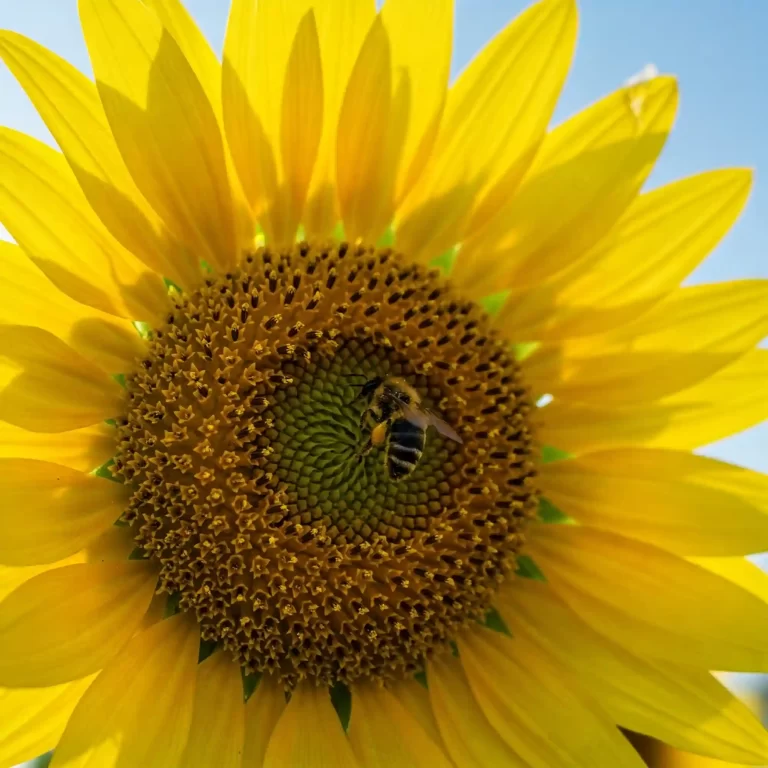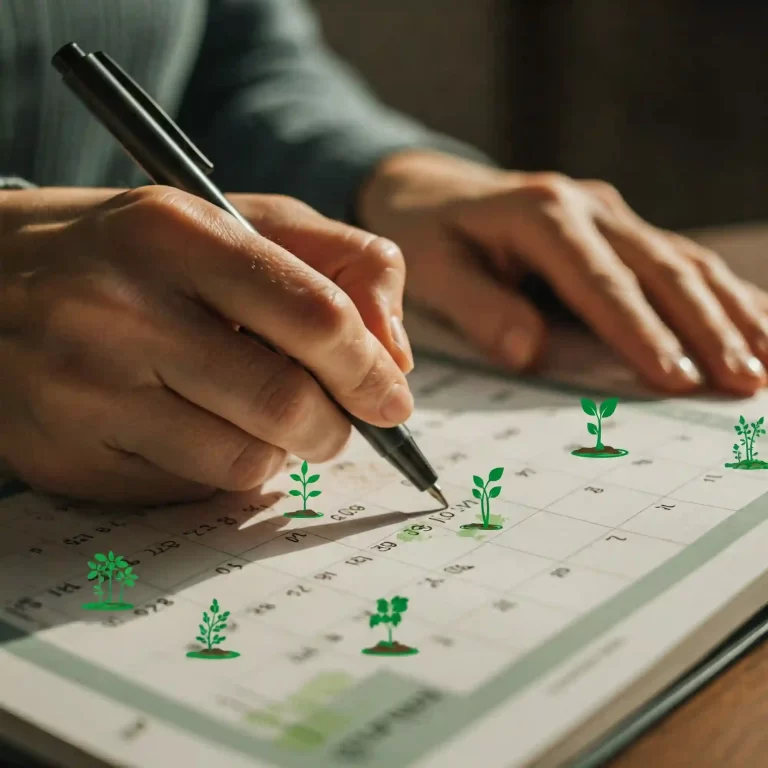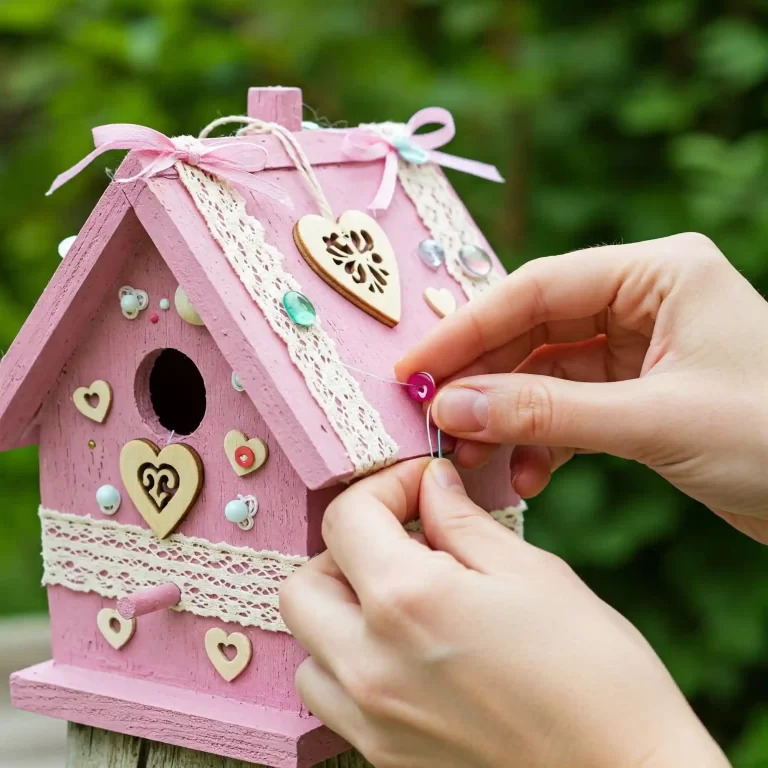| Key Takeaways |
|---|
| – Plants are wonderful living organisms that provide us with oxygen, food, medicine, and beauty. They also have many benefits for our mental and physical health, such as reducing stress, improving mood, enhancing concentration, and purifying the air. |
| – The science behind why plants make us happy is based on the biological and psychological mechanisms that are triggered when we interact with plants, such as the release of oxytocin, serotonin, and dopamine, the reduction of cortisol and blood pressure, the improvement of cognitive skills and productivity, and the enhancement of relationships and empathy. |
| – The best plants for happiness and well-being are those that purify the air and reduce stress, such as snake plant, peace lily, and spider plant, those that boost cognitive skills and productivity, such as rosemary, mint, and basil, those that help you heal and recover, such as aloe vera, lavender, and chamomile, and those that enhance your relationships and empathy, such as orchid, sunflower, and daisy. |
| – Growing plants that make you happy is a rewarding and enjoyable activity that can bring you a sense of accomplishment and satisfaction, an opportunity to express your creativity and personality, and a chance to connect with nature and yourself. You can start or continue growing plants that make you happy by choosing the right plants for your space, budget, and lifestyle, finding the best sources and resources for your plants, and learning the basics and best practices of gardening. |
Have you ever wondered why plants make you happy? Why do you feel a surge of joy when you see a blooming flower, a fresh herb, or a lush greenery? Why do you feel relaxed and calm when you are surrounded by nature, or when you touch or smell a plant? Why do you feel proud and satisfied when you harvest or gift a plant that you have grown or cared for?
If you have experienced any of these feelings, you are not alone. Plants are wonderful living organisms that provide us with oxygen, food, medicine, and beauty. They also have many benefits for our mental and physical health, such as reducing stress, improving mood, enhancing concentration, and purifying the air. In fact, studies have shown that people who have plants in their homes, offices, or gardens are happier, healthier, and more productive than those who do not.
But how exactly do plants make us happy? And what are the best types of plants to grow for happiness and well-being? And how can we grow plants that make us happy in our own spaces and lifestyles? In this article, we will explore the answers to these questions, and reveal the science and secrets of green therapy, or how plants can make you happier and healthier.
The Science Behind Why Plants Make Us Happy
The science behind why plants make us happy is based on the biological and psychological mechanisms that are triggered when we interact with plants. These mechanisms include:
- The release of oxytocin, serotonin, and dopamine. These are the hormones that are responsible for our feelings of love, happiness, and pleasure. When we touch, smell, or see a plant, our brain releases these hormones, which make us feel good and positive. For example, when we smell a rose, our brain releases oxytocin, which makes us feel loved and connected. When we see a sunflower, our brain releases serotonin, which makes us feel happy and optimistic. When we harvest a tomato, our brain releases dopamine, which makes us feel rewarded and motivated.
- The reduction of cortisol and blood pressure. These are the indicators of our stress level and cardiovascular health. When we are exposed to greenery, our body reduces the production of cortisol, which is the hormone that causes stress and anxiety. When we are relaxed and calm, our blood pressure also lowers, which reduces the risk of heart disease and stroke. For example, a study by Dr. Roger Ulrich showed that patients who had a view of nature recovered faster and needed less pain medication than those who did not. Another study by Dr. Virginia Lohr found that people who worked in offices with plants had lower blood pressure and reported less stress than those who did not.
- The improvement of cognitive skills and productivity. These are the abilities that help us perform better in our work, study, or creative endeavors. When we work or study in natural environments, or when we have plants in our spaces, our brain functions better and faster, our memory and attention span improve, and our creativity and problem-solving skills increase. For example, an experiment by Dr. Charles Hall found that employees who had plants in their offices were more productive, satisfied, and creative than those who did not. Another experiment by Dr. Ulrich showed that students who had plants in their classrooms performed better in math and reading tests than those who did not.
- The enhancement of relationships and empathy. These are the qualities that help us connect and communicate with others, and understand and share their feelings. When we share or gift plants with others, or when we join a gardening community, we strengthen our social bonds, increase our trust and cooperation, and develop our empathy and compassion. For example, a survey by Dr. Lohr revealed that people who received flowers as a gift reported higher levels of happiness, gratitude, and social connection than those who did not. Another survey by Dr. Hall showed that people who participated in gardening clubs or activities had more friends and felt more supported than those who did not.
As you can see, the science behind why plants make us happy is based on the powerful and positive effects that plants have on our hormones, stress, cognition, and relationships. These effects are not only beneficial for our individual happiness and health, but also for our collective well-being and harmony.
The Best Plants for Happiness and Well-Being
Now that we know how plants make us happy, let’s find out what are the best types of plants to grow for happiness and well-being. Of course, any plant that you like or enjoy can make you happy, but some plants have specific characteristics, benefits, and suitability that make them ideal for happiness and well-being. Here are some of the best plants for happiness and well-being, based on their categories:
| Category | Benefits | Examples |
|---|---|---|
| Plants that purify the air and reduce stress | These plants can filter out harmful toxins and pollutants from the air, such as formaldehyde, benzene, and carbon monoxide, and improve the air quality and oxygen level in your space. They can also lower your stress level and calm your nerves, by creating a soothing and relaxing atmosphere. | Snake plant, peace lily, spider plant, bamboo palm, English ivy, fern, rubber plant, etc. |
| Plants that boost cognitive skills and productivity | These plants can stimulate your brain and enhance your mental performance, by providing you with fresh aromas, flavors, and colors. They can also increase your productivity and motivation, by inspiring you to work or study harder and smarter. | Rosemary, mint, basil, lemon balm, sage, thyme, lavender, etc. |
| Plants that help you heal and recover | These plants can help you heal and recover from physical or emotional wounds, by offering you natural remedies, soothing effects, and therapeutic benefits. They can also help you cope with pain, inflammation, infection, or depression, by providing you with relief, comfort, and support. | Aloe vera, lavender, chamomile, calendula, echinacea, ginger, turmeric, etc. |
| Plants that enhance your relationships and empathy | These plants can enhance your relationships and empathy, by expressing your feelings, emotions, and intentions to others, or by receiving them from others. They can also help you connect and communicate with others, by creating a positive and friendly vibe, or by joining a common interest or hobby. | Orchid, sunflower, daisy, rose, lily, carnation, chrysanthemum, etc. |
These are some of the best plants for happiness and well-being, but there are many more that you can discover and explore. The important thing is to choose the plants that suit your space, budget, and lifestyle, and that make you happy and healthy.
How to Grow Plants that Make You Happy
Growing plants that make you happy is a rewarding and enjoyable activity that can bring you many benefits and joys, such as:
- The sense of accomplishment and satisfaction that comes from nurturing and harvesting plants. There is nothing like seeing your plants grow, bloom, or bear fruits, and knowing that you have contributed to their life and beauty. You can also enjoy the fruits of your labor, by eating, using, or sharing your plants with others.
- The opportunity to express your creativity and personality through your choice and arrangement of plants. You can create your own unique and personal space, by selecting the plants that reflect your style, taste, and preferences. You can also arrange your plants in different ways, such as in pots, baskets, terrariums, or hanging gardens, and add some decorations, such as stones, shells, or figurines, to make your space more attractive and inviting.
- The chance to connect with nature and yourself through the sensory and mindful experience of gardening. You can immerse yourself in the sights, sounds, smells, and textures of nature, and appreciate the beauty and diversity of plants. You can also practice mindfulness and meditation, by focusing on your breath, your movements, and your sensations, and letting go of your worries and thoughts.
If you want to start or continue growing plants that make you happy, here are some of the practical and simple steps that you can follow:
- Choose the right plants for your space, budget, and lifestyle. You can do some research online or offline, or ask for some advice from experts or friends, to find out what are the best plants for your needs and preferences. You can also consider some factors, such as the size, shape, color, and maintenance of the plants, and how they match with your space and personality.
- Find the best sources and resources for your plants. You can buy your plants from various places, such as nurseries, online shops, farmers’ markets, or even your own backyard. You can also get some plants for free or for a low cost, by exchanging, propagating, or rescuing them. You can also find some useful and reliable resources for your plants, such as gardening books, blogs, podcasts, or videos, that can teach you more about the plants and how to care for them.
- Learn the basics and best practices of gardening. You can start with some simple and easy steps, such as watering, pruning, fertilizing, and repotting your plants, and gradually learn more advanced and complex techniques, such as composting, mulching, pest control, and harvesting. You can also experiment and try different methods and styles of gardening, such as organic, hydroponic, or vertical gardening, and see what works best for you and your plants.
Conclusion
Plants are amazing living organisms that can make you happier and healthier, by affecting your hormones, stress, cognition, and relationships. The science behind why plants make us happy is based on the biological and psychological mechanisms that are activated when we interact with plants. The best plants for happiness and well-being are those that purify the air and reduce stress, those that boost cognitive skills and productivity, those that help you heal and recover, and those that enhance your relationships and empathy. Growing plants that make you happy is a rewarding and enjoyable activity that can bring you a sense of accomplishment and satisfaction, an opportunity to express your creativity and personality, and a chance to connect with nature and yourself.
Now that you know how plants can make you happier and healthier, and why that is the case, we hope that you are inspired and motivated to grow or enjoy more plants in your life. Whether you have a small or large space, a low or high budget, a busy or relaxed lifestyle, you can always find a way to incorporate plants into your daily routine and environment. You can also share your plants and your passion with others, and spread the happiness and health that plants can bring.
What are some of the plants that make you happy and why? How do you plan to grow or enjoy more plants in your life? What are some of the challenges or opportunities that you face when growing plants that make you happy? Let us know in the comments below, and happy gardening!



